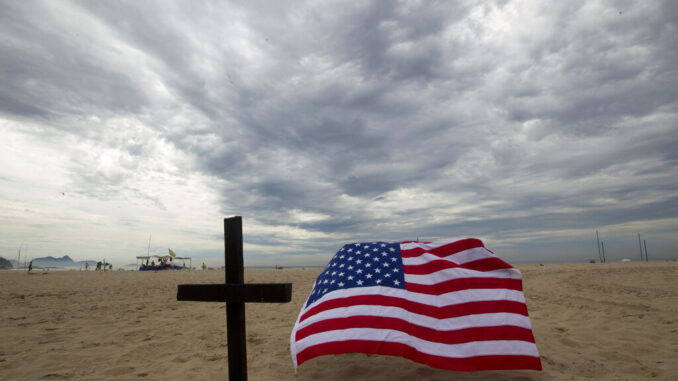
Richard Dawkins is an evolutionary biologist and researcher who has spent a career at Oxford University in Great Britain becoming perhaps more famous as an atheist denier and debunker of Christian belief.
In a recent interview, he announced, apparently without any twinge of self-awareness: “(I like) living in a culturally Christian country although I do not believe a word of the Christian faith. … I call myself a cultural Christian.”
He went on to say: “I’m not a believer, but there is a distinction between being a believing Christian and a cultural Christian. I love hymns and Christmas carols and I sort of feel at home in the Christian ethos, and I feel that we are a Christian country in that sense.”
Isn’t that like being an evolutionary freeloader like a remora suckerfish which attaches itself to larger marine animals and rides along under their power, protection and direction? Doesn’t Dawkins have the depth of reasoning to understand that without people actually being Christians and living out the Christian faith, there would be no “Christian culture” in which he could live?
What is going on here?
While Dawkins’ militancy against faith in general ― but against Christianity in particular ― has been virulent at times, maybe he is waking up to the fact that Christian nations tend to have more individual believers govern themselves in a spiritually inspired moral and ethical manner than any other nation on Earth.
John Adams said at the beginning of our democratic republic: “Our Constitution was made only for a moral and religious People. It is wholly inadequate to the government of any other.”
Alexis de Tocqueville came to the same conclusion roughly a half-century later when he traveled the United States and concluded that the general spread and acceptance of Christian faith was the fabric that held the new nation together. He went so far as to say if the U.S. ever became a non-faith-driven society, our form of self-governance would collapse under its own weight.
Free thinkers such as Dawkins no doubt have become concerned as street violence and violation of civil law come near to his home in England. The rise of the pro-Palestinian, death-to-the-Jews protestors in Western countries certainly has raised the consciousness and concern of many people to whom matters of faith and Christianity have not been of primary concern during their lives.
“If I had to choose between Christianity and Islam, I’d choose Christianity every single time. … It seems to me to be a fundamentally decent religion, in a way that I think Islam is not,” Dawkins went on to say.
“Christianity” is not something a person buys off the rack at Nordstrom. Christianity is something you do and become.
When I was going through an interview process for college, I was asked the following question: “If you believe faith is a personal matter between you and God, would the institution of the Christian church have survived the ages?”
Good question. Probably not. The same question can be asked of people like Dawkins who enjoy all the benefits of an inherently Christian nation: “Would the United States remain the United States of America if you did not attend church or support the church financially and with prayer support within the Christian community?”
Again, probably not.
Times of turmoil often lead to times of great spiritual reawakenings in America. The first Great Reawakening occurred in the 1730s; the second in the 1830s; the third in the late 1800s/early 1900s; and the final one in the late 1960s/early 1970s exemplified by the preaching of Billy Graham and the “born-again” evangelical explosion of the late 20th century.
It may be the time is ripe for a Fifth Great Awakening in America. Will it start in the African American churches where spiritual renewal has always been welcomed on a daily basis? Will it come from a growing Hispanic base whose historical Catholic faith has always been one of the great strengths of their communities?
Or will it start in the homes of every citizen who has taken the benefits of living in an inherently Christian culture as a given ― just as Richard Dawkins has done ― as long as “other people” do all the work required to help the church influence societal norms which benefit them in the long run?
Anyone can come up with a dozen reasons why they don’t want to go to church or accept Jesus as their Lord and Savior. No one can come up with a good reason why they want to see America slip away as de Tocqueville predicted almost 200 years ago.

